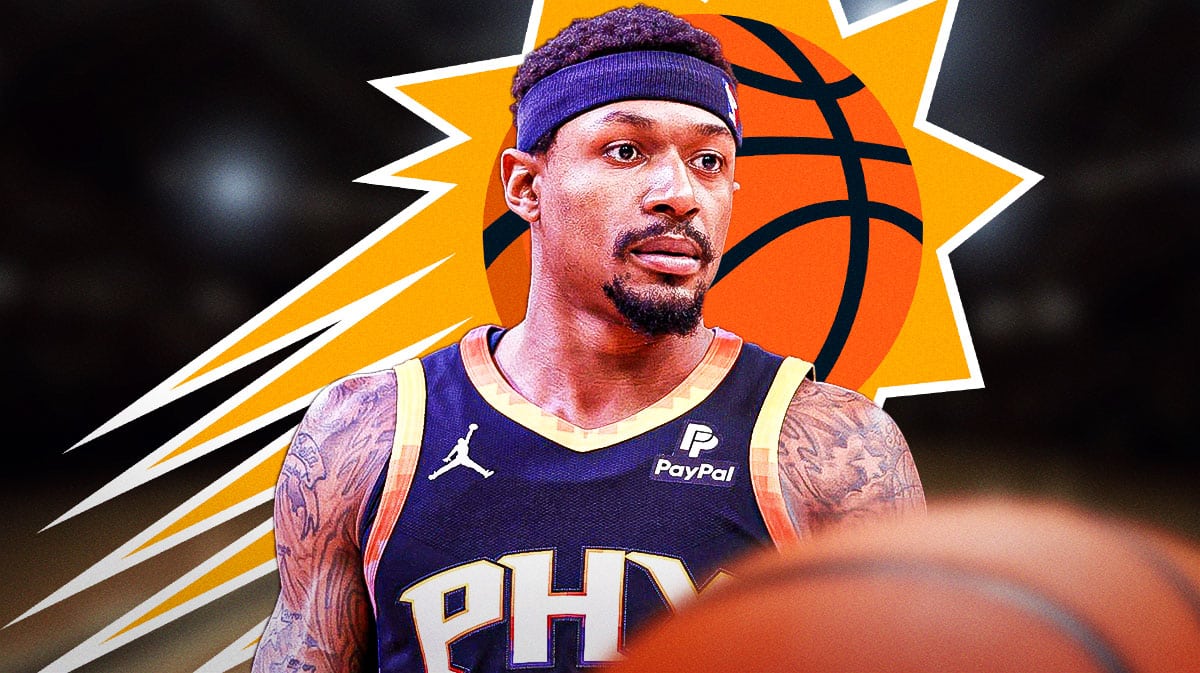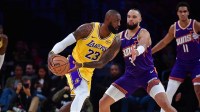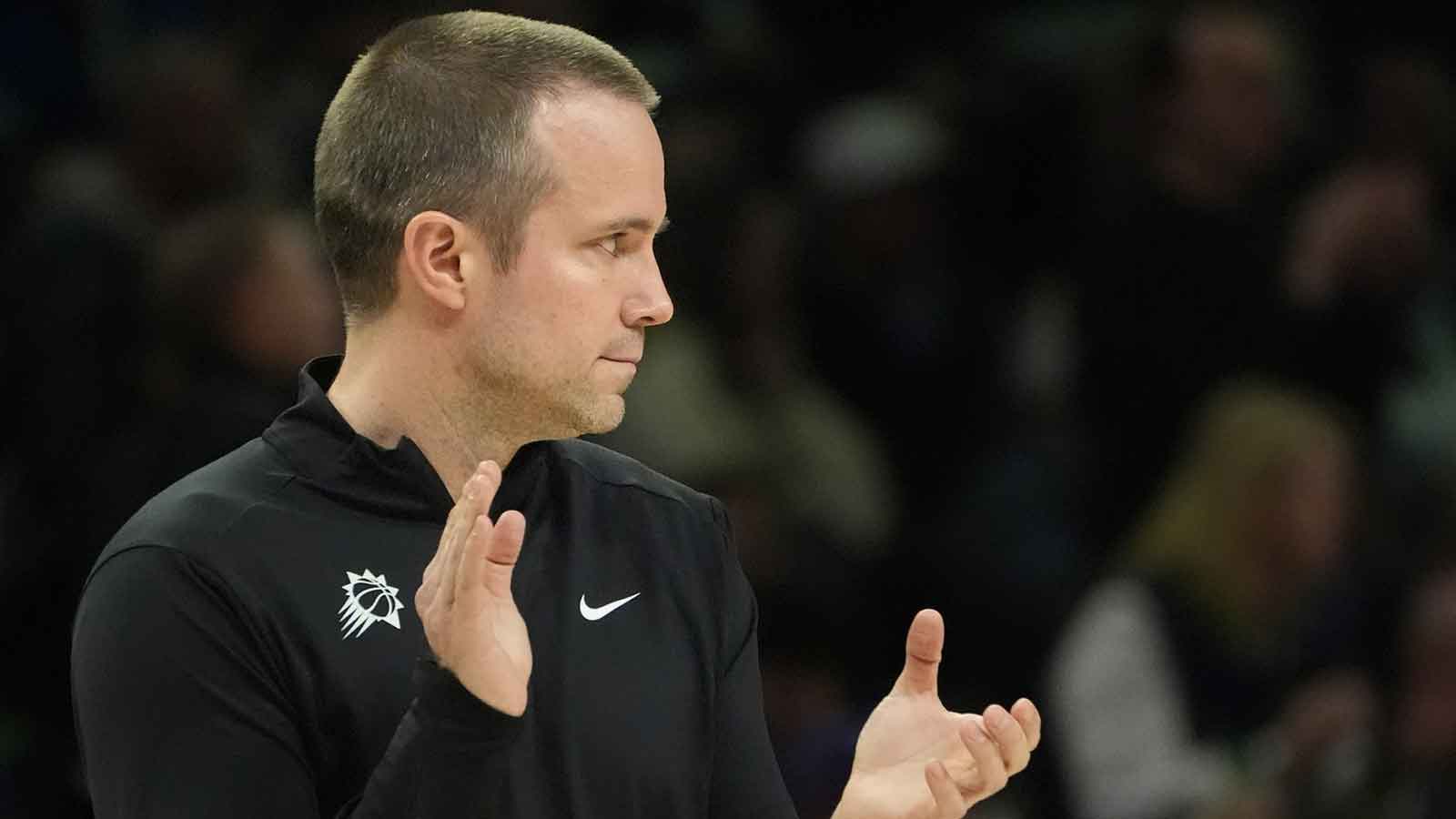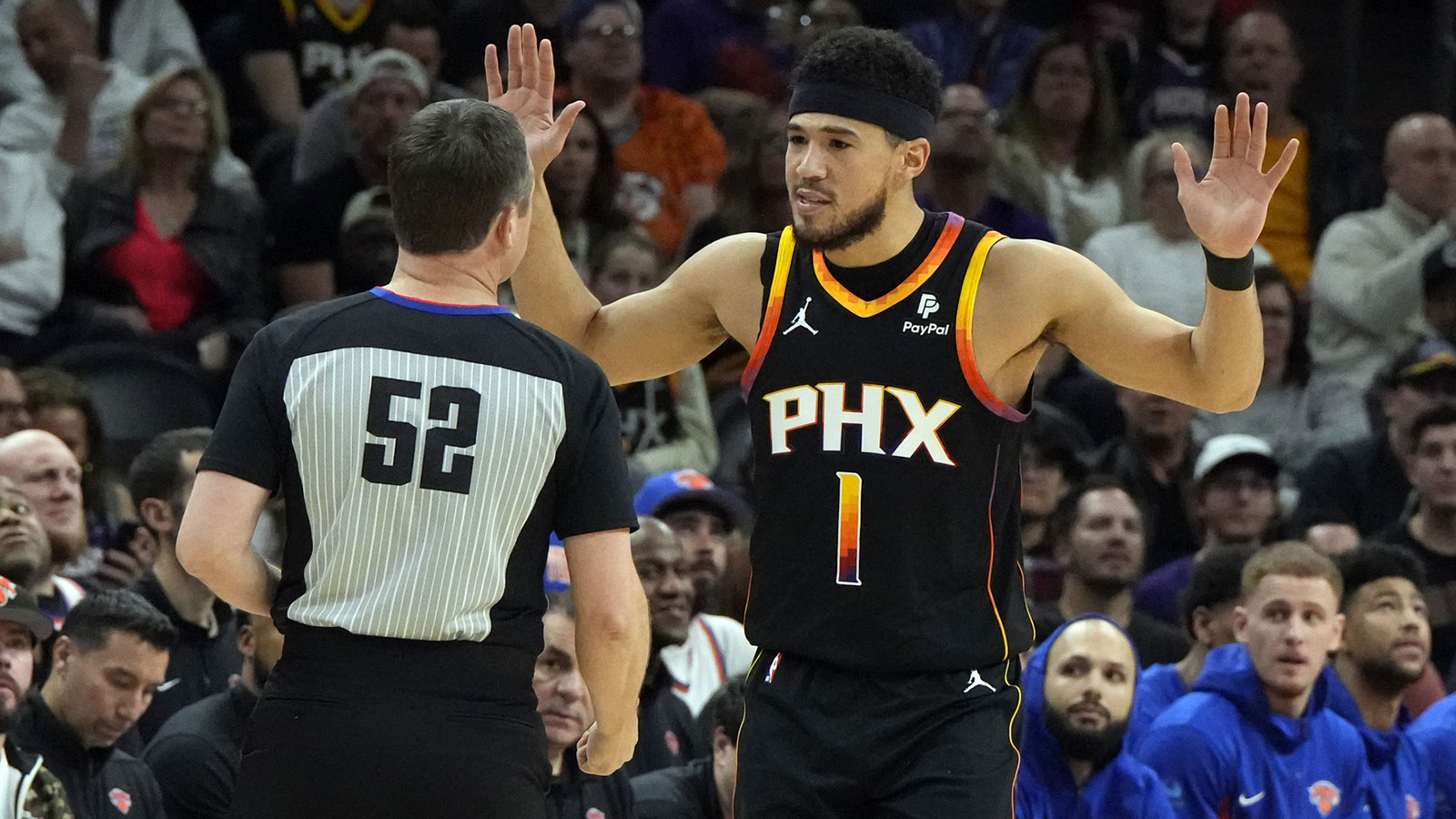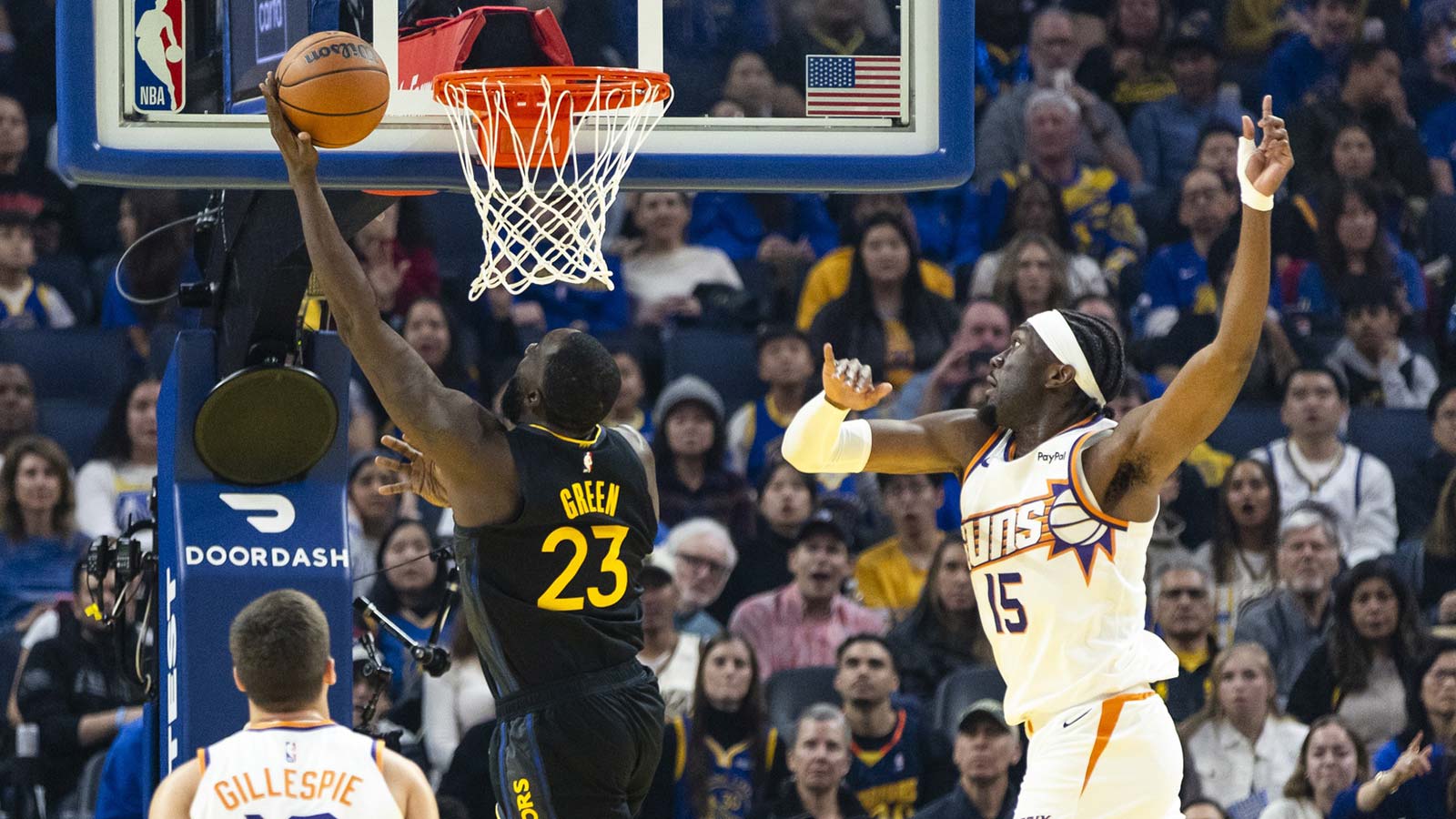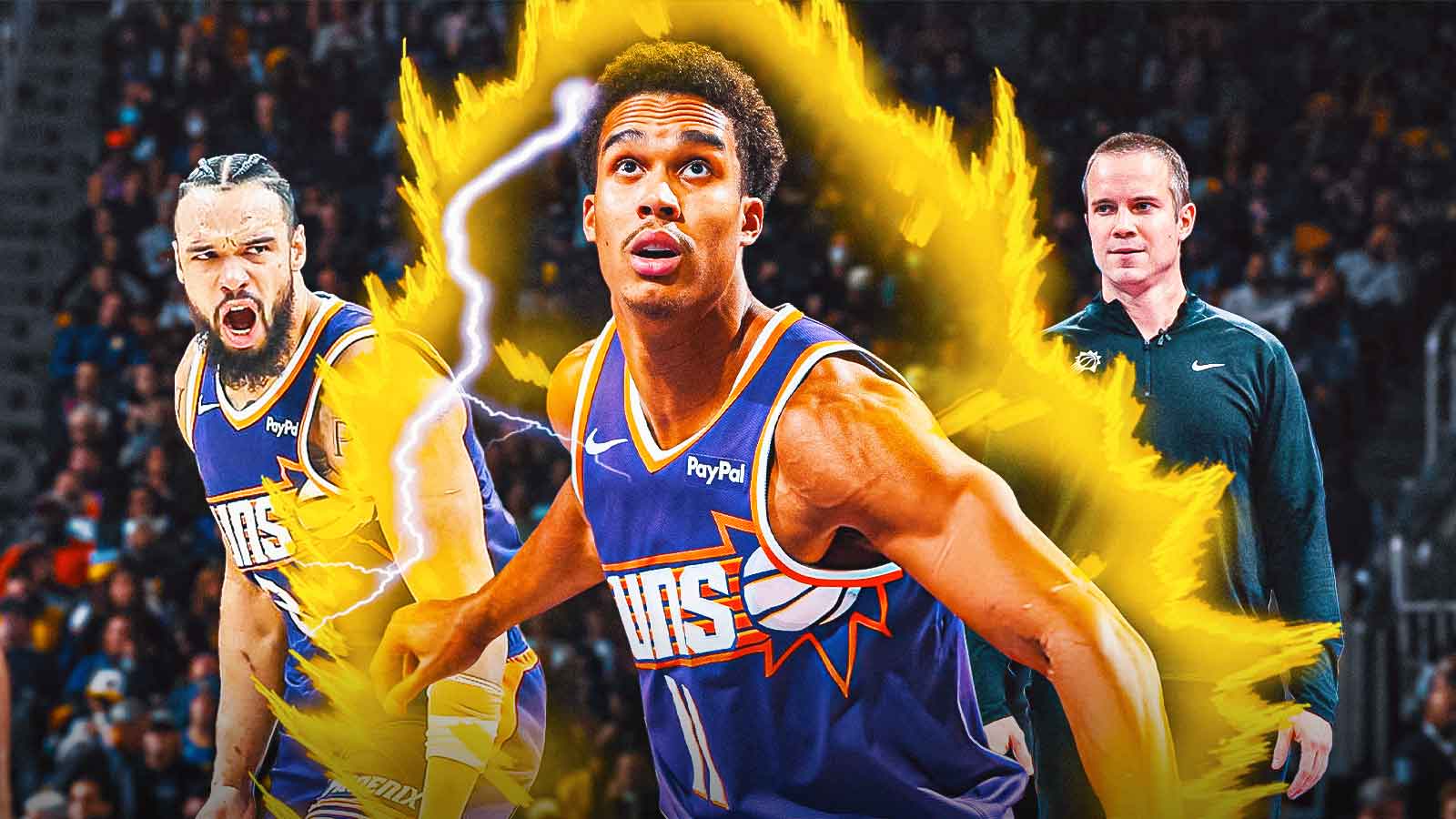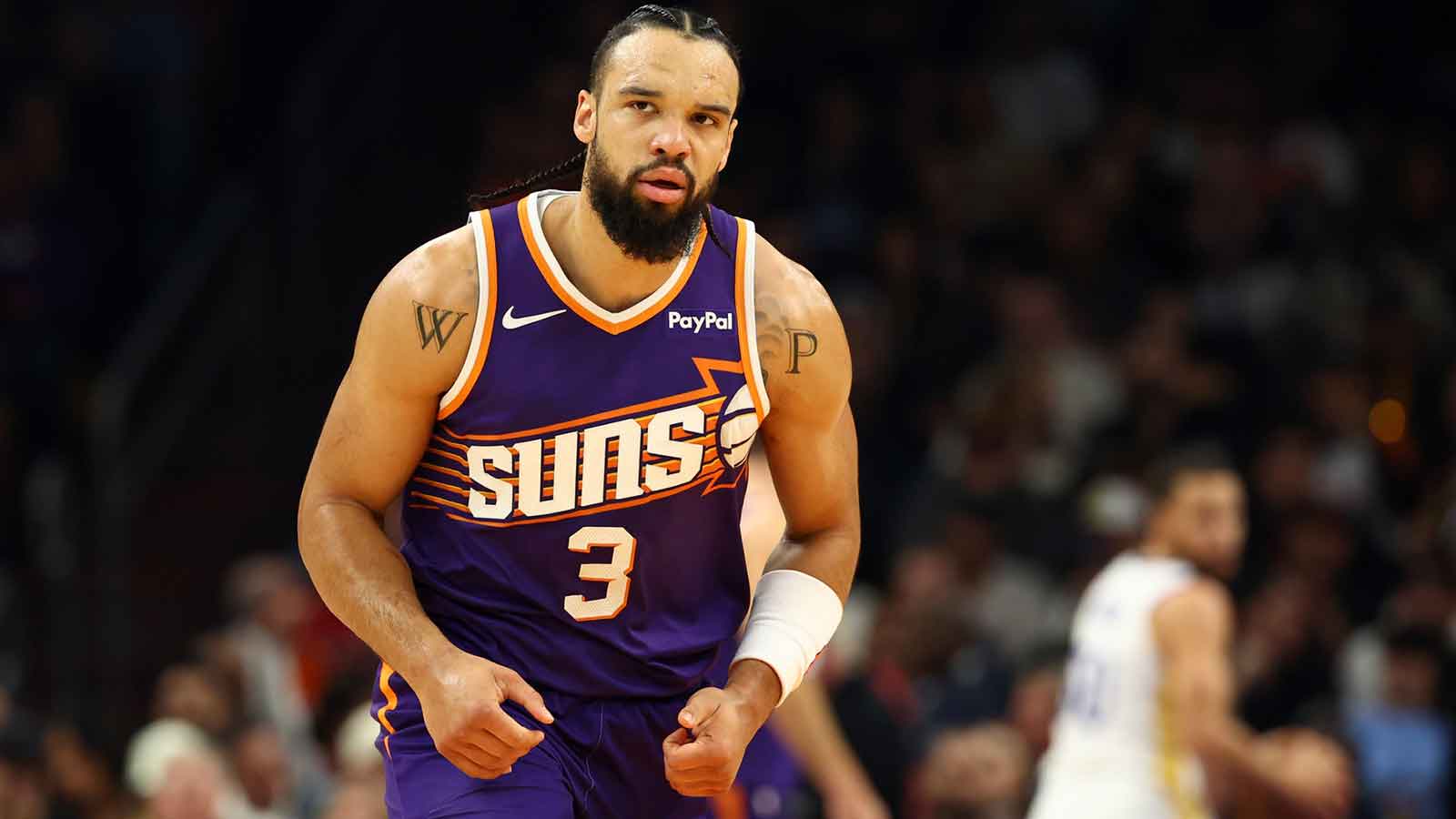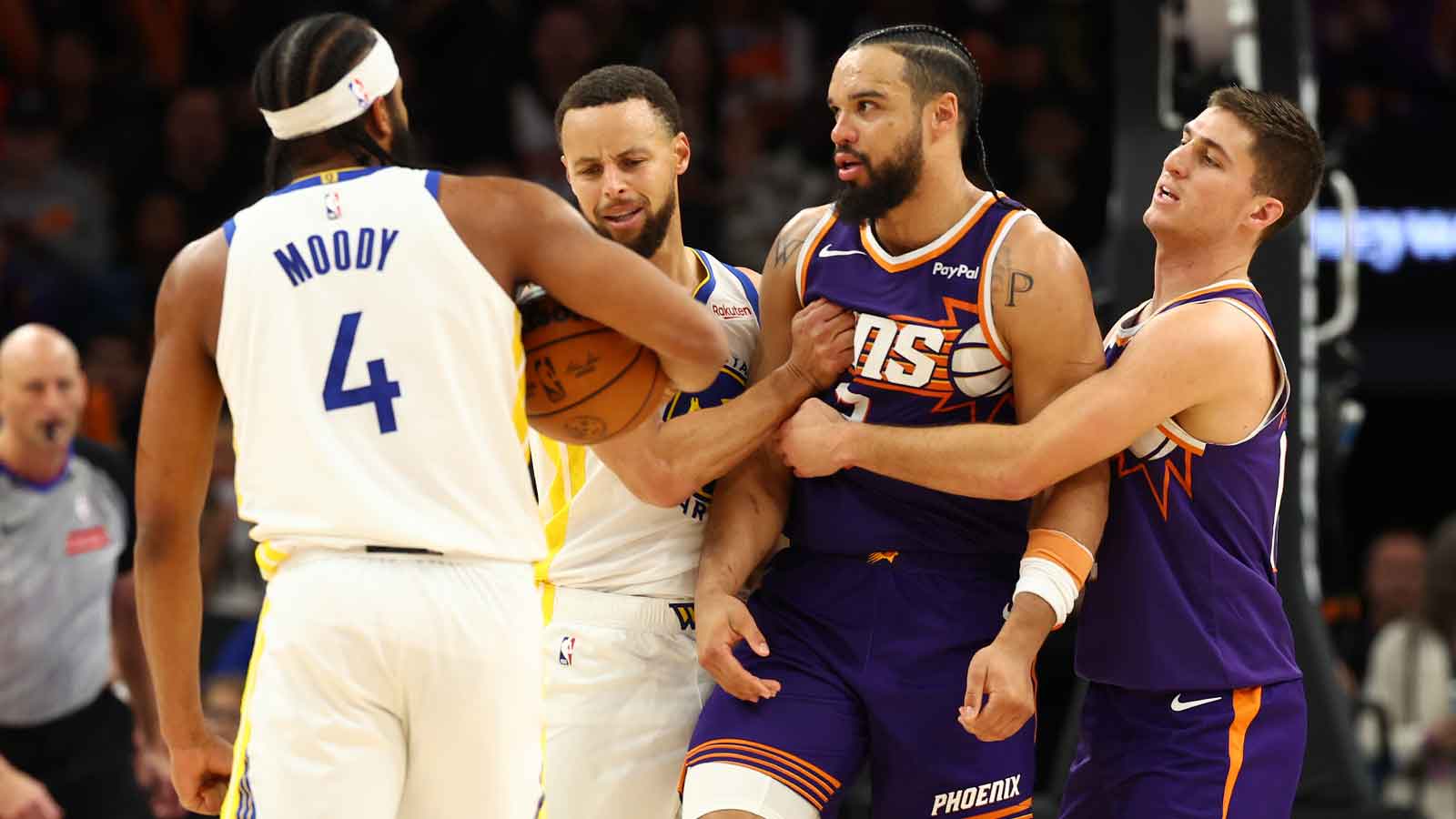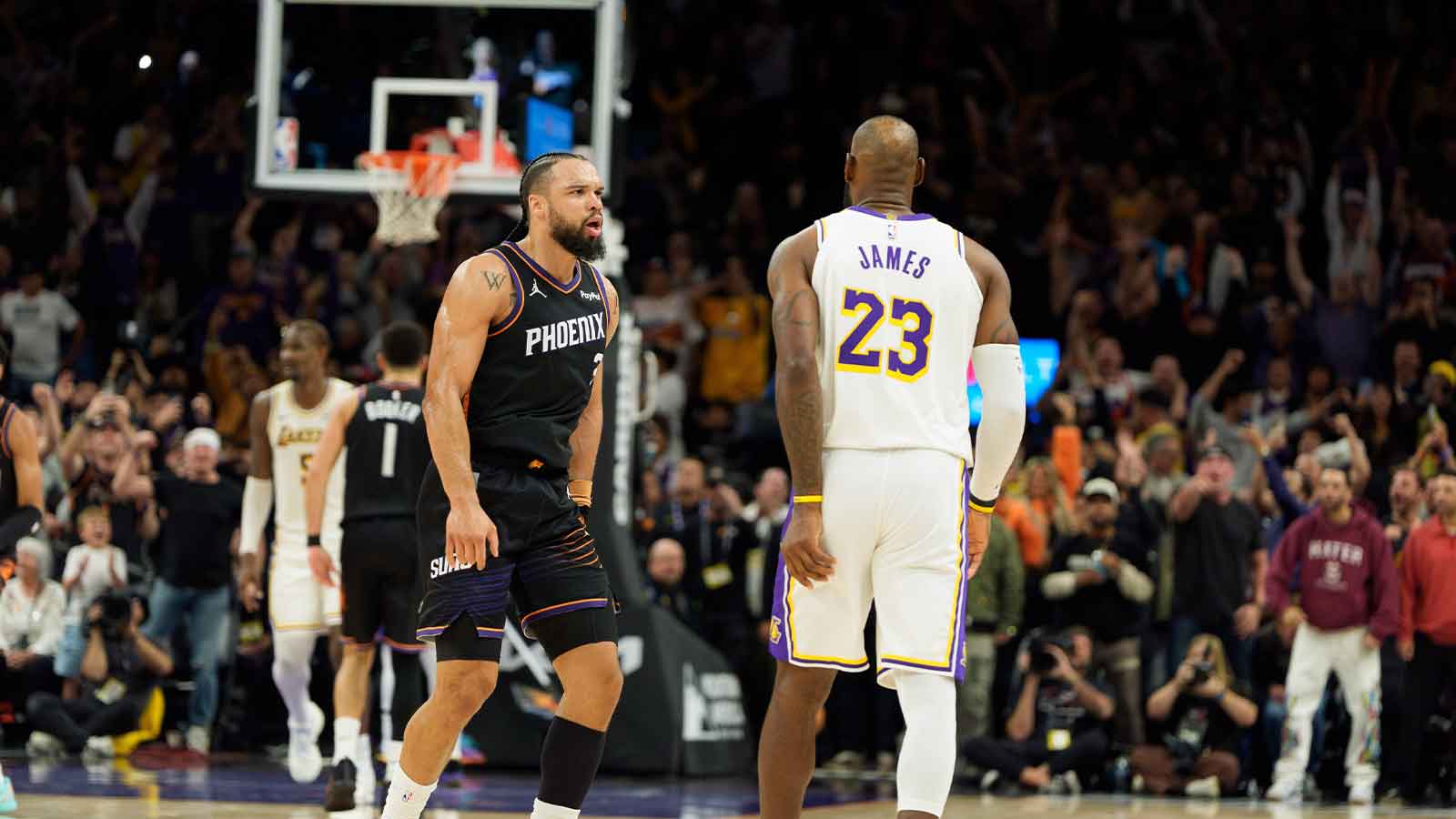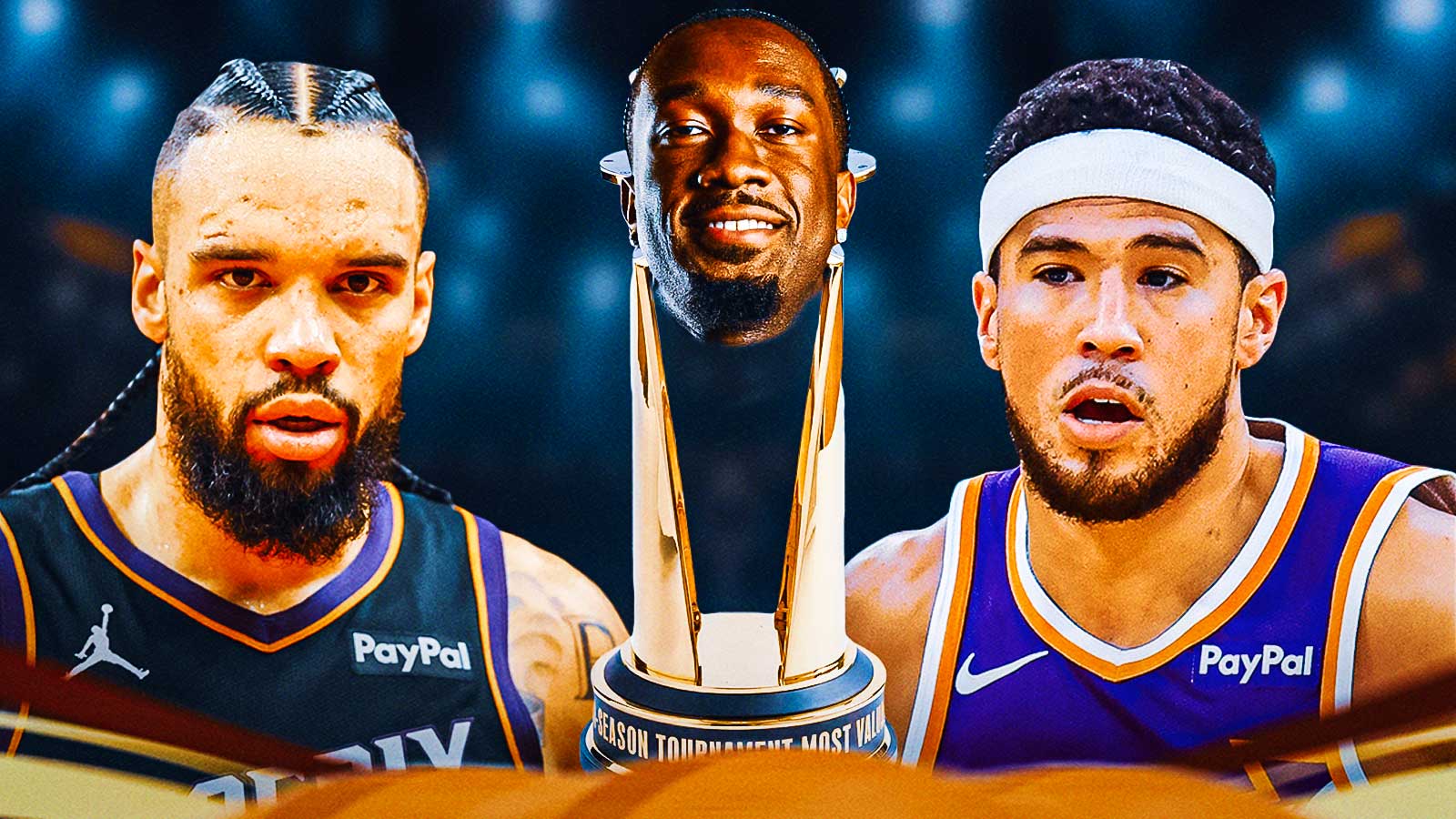The Phoenix Suns have an undesirable but pivotal NBA offseason approaching. Despite trading for Kevin Durant during the 2022-23 season and Bradley Beal during the 2023 offseason, the Suns failed to win a single game in their first-round playoff series vs. the Minnesota Timberwolves. And now, team owner Mat Ishbia and president James Jones are tasked with somehow transforming the current Suns roster into a legitimate championship contender.
When Ishbia greenlighted Phoenix's trade for Durant at the 2023 trade deadline, it appeared as if the Suns may be able to replicate or even surpass the success they had during the 2021 playoffs, when they reached the NBA Finals for the first time in franchise history. Injury luck was not kind to Phoenix, however, as Durant, who had been injured to end his Brooklyn Nets tenure, briefly showed glimpses of the potential with him and Devin Booker as a pairing until Durant sustained an ankle injury.
Although Durant would manage to return, the lost time seemed to slow the on-court chemistry between himself, Booker, Chris Paul, and DeAndre Ayton. Phoenix defeated a shorthanded Los Angeles Clippers squad before losing to the eventual NBA champion Denver Nuggets in six games in the second round.
During the 2023 offseason, the Suns, who seemed to go all-in with the Durant trade, made the decision to trade for Beal. While a 30-point scorer just a few seasons earlier, Beal was no hot commodity, in large part due to his $251 million contract, which was roundly criticized when it was signed. The worst part of the contract was not the money, though; it was that Beal negotiated a no-trade clause into it.
No-trade clauses effectively give the player who possesses one the power to veto any trade involving himself. A NTC allows the player to essentially pick which team he wants to be traded to and the players and assets they are exchanged for. As such, no-trade clauses are incredibly rare in the NBA. In fact, Beal is the only player in the league to currently have a NTC.
After one season under his new contract, Beal allowed the Washington Wizards to trade him to the Suns during the 2023 offseason in a deal that included Chris Paul, Landry Shamet, and a proverbial boatload of first-round pick swaps and second-round picks. Unfortunately, Beal, Durant, and Booker could not all stay healthy at the same time for an extended period, and when the team, finally healthy, arrived in the playoffs, it became clear the Suns were simply not good enough to overcome a defense as stingy as the Timberwolves'.
BREAKING: The Washington Wizards are finalizing a trade to send All-Star G Bradley Beal to the Phoenix Suns, sources tell ESPN. Beal’s waiving his no-trade to form a new Big 3 with Devin Booker and Kevin Durant. Teams are still working thru framework, but Beal is headed to Suns. pic.twitter.com/0lQrSh370q
— Adrian Wojnarowski (@wojespn) June 18, 2023
Now, the Suns have to take a very thorough look at their roster and decipher what can be done with what they have. Due to the trades that brought in Durant and Beal, as well as the combined salaries of the ‘Big 3,' the Suns have very little wiggle room.
While Phoenix could, in theory, trade Durant or Booker, that seems incredibly unlikely considering they are the two best and most popular players on the team and that the team has already committed so much to them in terms of money and, in the case of Durant, trade capital sent out to acquire him. That leaves only a few possibilities for trades, and while Jusuf Nurkic, Grayson Allen, and Nassir Little could realistically be moved, their salaries are relatively small and cannot be combined together in a trade, making it unlikely the Suns could exchange them for fortune-changing pieces.
And then there is Beal, who has three years and more than $150 million remaining on his deal (including his $57.1 million player option in 2026-27). Due to his enormous cap hit and the fact that he is the third guy in the Durant-Booker-Beal trio, he would normally be the most likely player to of the three to be moved this offseason. However, as mentioned earlier, Beal possesses a no-trade clause, which gives him all of the leverage this summer.
Whether Beal wants to be traded remains to be seen, but it could get pretty awkward if he doesn't. Since Beal can unilaterally shut down any trades involving himself, he could theoretically stay in Phoenix as long as his contract allows. For the purposes of this article, we are going to presume Beal OKs these trades, but considering he has the ability to veto any and all, we've marked them as unlikely to happen.
Before we jump into the trades, let's run through some of the restrictions the Suns face this offseason as a second-apron team. The second apron, to quickly summarize, is a figure above the salary cap that the league sets. If a team is above the second apron (i.e. has a payroll much higher than the salary cap), like the Suns, they face severe restrictions when trying to sign free agents and execute trades.
Here are the offseason restrictions Phoenix faces as a second-apron team:
- Cannot acquire player via sign-and-trade
- Cannot use bi-annual exception
- Cannot take back more salary than it sends out in trade
- Cannot use trade exception generated during previous year
- Cannot include cash in trade
- Cannot combine salaries of multiple outgoing players in trade
- Cannot trade first-round picks seven years out
- Cannot use taxpayer mid-level exception
Fun. Since we're focusing on Beal, it should be noted that he is see to make $50,203,930 in 2024-25, and since the Suns cannot take back any more than that, are limited to acquiring that figure or less in any trade with Beal. Additionally, Beal cannot be traded with another player due to the aggregating salaries restriction.
The Suns only have a 2024 first-round pick (which technically cannot be traded until after the pick has been made) and a protected 2028 second-round pick to use as trade assets. Since Beal's contract is an albatross with a dreaded no-trade clause included, the Suns will likely have to attach their remaining draft capital to most trades to entice a team to take Beal.
All right, so let's get into some unrealistic trades involving Bradley Beal.
Bradley Beal finally lands in Miami
Suns get: Terry Rozier and Duncan Robinson
Heat get: Bradley Beal, 22nd overall pick in 2024 NBA Draft, 2028 protected second-round pick (via Boston)
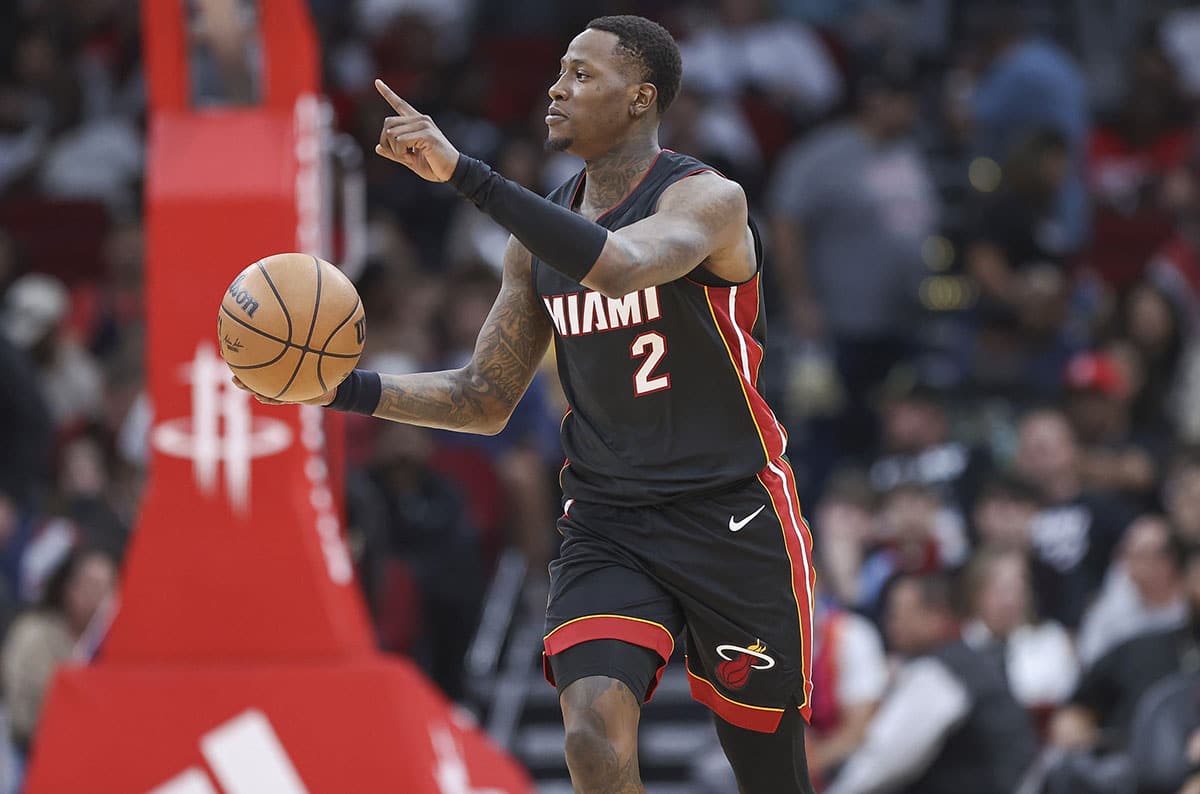
Before approving his trade from Washington to Phoenix, Beal flirted with the idea of joining the Miami Heat. In fact, Beal said in October that the Heat were his “initial favorite” but that they were “dragging feet.” The Heat ultimately passed, possibly with the hope or expectation that they would acquire Damian Lillard, giving the Suns the opportunity to trade for Beal.
This offseason could serve as a do-over for Beal and the Heat (if Miami can get under the second apron). Miami, which was swept in the first round of the playoffs by the Boston Celtics, played the entire series without the injured Jimmy Butler, who got off to an odd offseason Cold War of sorts with team president Pat Riley. While Butler could choose to opt out of his deal next summer, it's unlikely he would do that at 35 years old. Therefore, the Heat could pair Butler, Beal, Bam Adebayo, and its usual collection of overlooked role players to build a formidable Eastern Conference squad.
The Suns, in exchange, would get Terry Rozier, a dedicated point guard, as well as Duncan Robinson, a sharpshooting three-point shooter. Robinson would fit very well in Mike Budenholzer's offense, which has featured shooters such as Kyle Korver in the past.
Nets pair Beal with Mikal Bridges and Ben Simmons
Suns get: Dennis Schroder and Cameron Johnson
Nets get: Bradley Beal, 2028 protected second-round pick (via Boston)
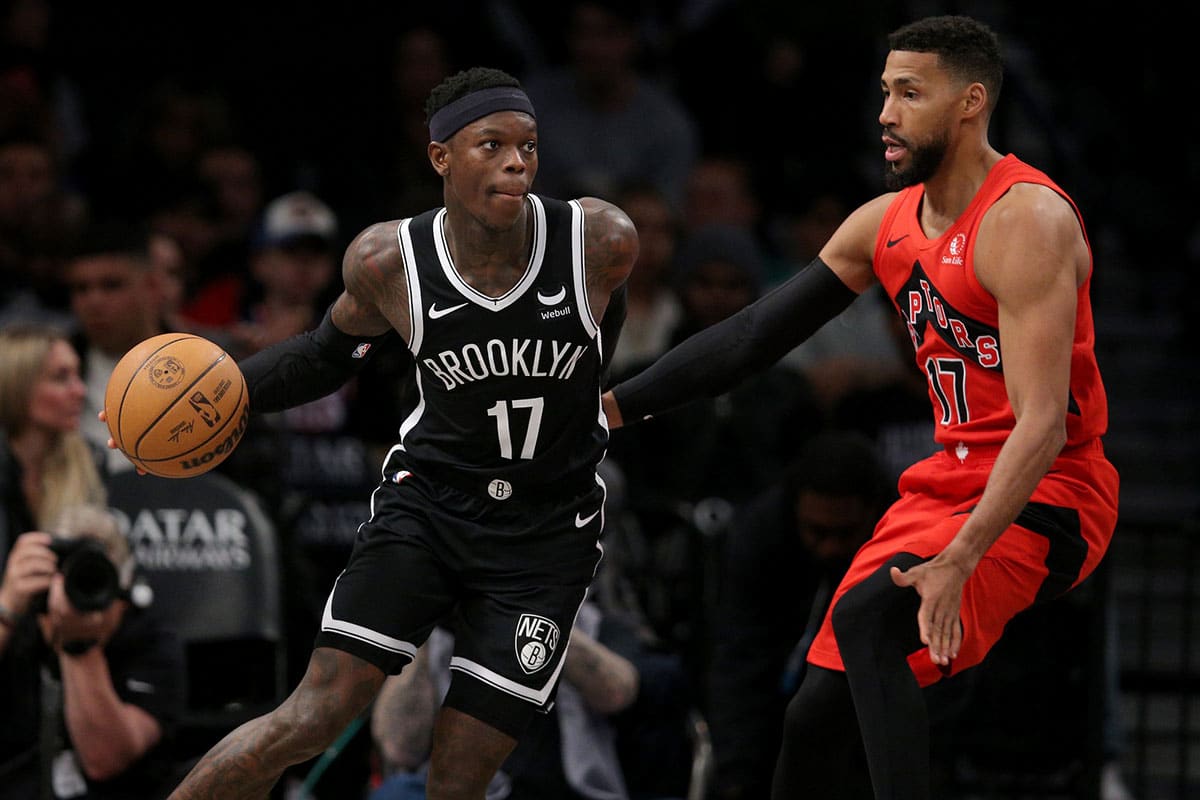
The Brooklyn Nets, like the Suns, are in a pretty bad situation for the time being. After going all-in trying to win a title with Durant, Kyrie Irving, and James Harden, Brooklyn was left without any of them just a few years after forming. Now, the team possesses many of the role players and secondary pieces needed to win a title but lacks a superstar.
For the Suns, they would be acquiring Dennis Schroder, a valuable, two-way point guard who has played under Budenholzer and showed his true value to a playoff team with the Los Angeles Lakers in 2023. This trade would also reunite Booker with Cam Johnson, a career 39% three-point shooter, who played parts of four seasons together in Phoenix. The values of Schroder and Johnson are also not remarkably high at the moment, which could help Phoenix swing a trade for players that would seem to fit well within Budenholzer's system.
While Beal might be past his prime, he does bring a greater offensive punch than the Nets currently have and would take some much-needed pressure off of Mikal Bridges' shoulders. Additionally, if — a word that cannot be stressed enough here — Ben Simmons is able to regain his health and prove capable in distributing the ball and on defense, a trio of Beal, Simmons, and Bridges would be tough to match up against in the Eastern Conference.
Darius Garland comes to Phoenix
Suns get: Darius Garland
Cavaliers get: Bradley Beal, 22nd overall pick in 2024 NBA Draft, 2028 protected second-round pick (via Boston)
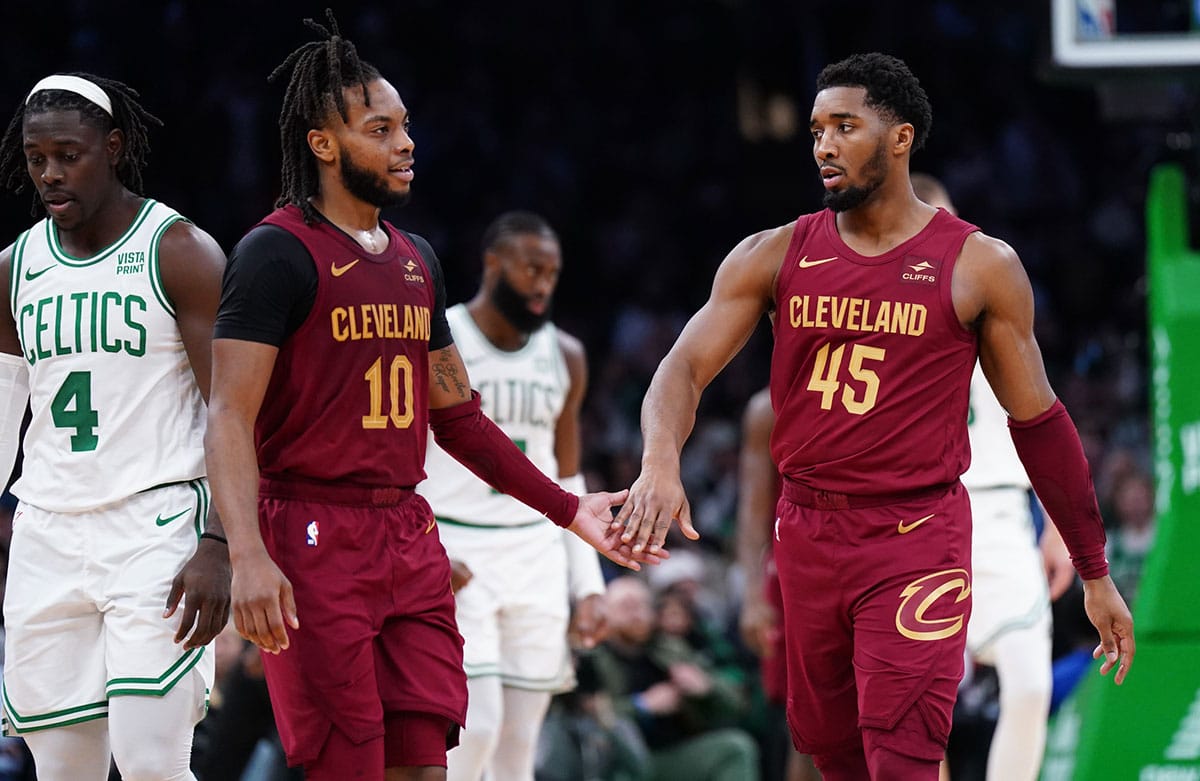
If the Cleveland Cavaliers can hold on to Donovan Mitchell, the team will reportedly look to ship out Darius Garland, who may fit better alongside Devin Booker than he did Mitchell in Cleveland.
The Suns would be getting a young, promising guard (21.7 points and 8.6 assists per game two years ago) who can shoot (38.4% career three-point shooter), while the Cavs would be getting a scoring threat that would allow Mitchell to dominate the ball more. This could be an attractive situation for Beal since the Cavaliers are likely still to be a consistent playoff team for a few years.
Bradley Beal forms tandem with Trae Young
Suns get: Dejounte Murray and De'Andre Hunter
Hawks get: Bradley Beal, 22nd overall pick in 2024 NBA Draft, 2028 protected second-round pick (via Boston)
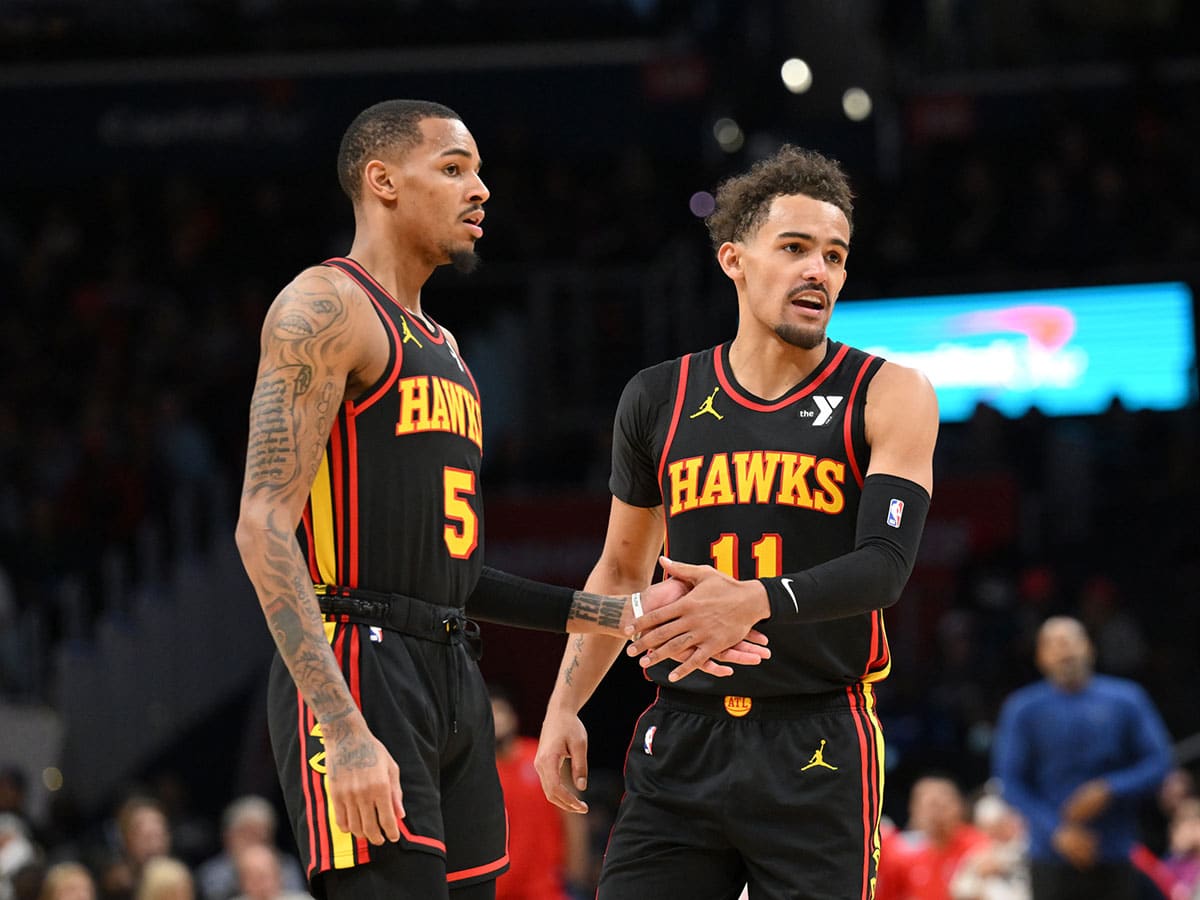
The Atlanta Hawks gambled when trading for Dejounte Murray, hoping that he would be able to coexist with another ball-dominant player in Trae Young. The experiment has yielded less-than-stellar results, and reporting indicates Atlanta is thinking of pulling the plug this offseason.
A major issue the Hawks had with Murray and Young is that they're both best at being the primary ballhandler on their team. If Atlanta swapped out Murray for Beal, the issue would probably disappear. While there would still be some question marks when it comes to Atlanta's backcourt defense, the offense would probably mesh better, and with the emergence of Jalen Johnson, the Hawks could continue to overwhelm teams with their offensive firepower.
The Suns would be getting back Murray, who could return to being a true point guard as he showed he was more than capable while a member of the San Antonio Spurs. De'Andre Hunter, whose stock is relatively low, could likely fill the role Royce O'Neale and Nassir Little did last season.

